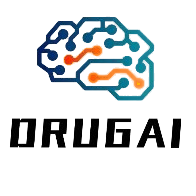MICCAI 2020 RibFrac Challenge:¶
Rib Fracture Detection and Classification¶
Note: To access the dataset, please "join" the challenge first.
Update 10-30: Submission is open again, and more metrics will be shown in your evaluation results. It will be an online benchmark.
Update 10-13: We have made the slides and videos available! Check the challenge program please ;-)
Update 10-04: The challenge program (Oct 4) is available! If you have registered MICCAI 2020 Satellite Event (Day 1), feel free to come to our virtual challenge workshop ;-)
Update 09-14: The leaderboard has been close temporarily; it will be open again after our MICCAI 2020 challenge workshop at Oct 4.
Update 09-01: Please use the updated evaluation code for your offline evaluation, since we have fixed a bug.
Update 08-31: The evaluation and leaderboard is now open!
Update 08-27: Note the evaluation and leaderboard will be available during Aug 31, 2020, 00:00 ~ Sep 13, 2020, 23:59, Beijing Time (GMT+8).
Update 08-24: We have released the test dataset! Note that the evaluation and leaderboard will be available after 1 week.
Update 06-15: We have released the annotated training and validation dataset! Please Join the challenge and check out the Dataset.
Update 06-02 06-12: We are at final data re-checking stage. Training
data is supposed to be released at June 7 June 14. Sorry for being
late.
1. Background¶
Diagnosis of rib fractures serves as an important and common task in clinical practice, forensics and several business scenarios (e.g., insurance claims). However, few prior studies investigate automatic machine learning techniques on this labor-intensive task. This challenge establishes a large-scale benchmark dataset to automatically detect and classify around 5,000 rib fractures from 660 computed tomography (CT) scans, which consists of 420 training CTs (all with fractures), 80 validation CTs (20 without fractures) and 160 evaluation CTs. Each annotation consists of a pixel-level mask of rib fracture regions (for serving detection), plus a 4-type classification. Both detection and classification tasks are involved in this challenge. An algorithmic challenge for rib fracture detection and classification is the elongated object shape. We hope this challenge could facilitate the research and application of automatic rib fracture detection and diagnoses.
2. Important Dates¶
June 15, 2020 |
The release date of the training cases and validation cases |
June 1, 2020 ~ Aug 31, 2020 / 3 months |
The registration period |
Aug 24, 2020 |
The release date of the test cases |
Aug 31, 2020 ~ Sep 13, 2020 / 2 weeks |
The test result submission period: pubic leaderboard will be open |
| Sep 14, 2020 ~ Sep 27, 2020 / 2
weeks |
Top teams submit team information, solution and presentation |
3. Awards¶
- As there are 2 tasks (detection and classification) in the challenge, awards are recognized for the 2 tasks separately.
- A certificate will be awarded to challenge top-3 teams (1 winner and 2 runner-up).
- The organizer will afford partial costs for attending the satellite event for the top-3 teams.
- Cash prizes will be awarded to the top teams, including (but not limited to) $1,000 to the winner team.
- Top teams (up to 10) will be invited to contribute to a challenge review paper. Details in the Publication page.
- Note that although the performance of Task 2 is partially dependent on that of Task 1, we award the 2 tasks separately. The winner of Task 1 could submit results for Task 1 only, but a well-performing Task 1 algorithm is an advantage for Task 2.
4. Rules¶
- A public leaderboard is available during a 2-week evaluation period (1 week after the evaluation set is released).
- Challenge participants will be allowed to make maximum 2 submissions per day during the evaluation period.
- Top-3 teams for each task are required to submit a 4-page solution.
- Publicly available data is allowed if and only if it is clearly stated in the submitted solution.
- Any manual labeling on training, validation or test test is strictly forbidden. However, you are free to generate any auxiliary label with fully automatic algorithms if and only if it is clearly stated in the submitted solution.
- Open source code is not required. However, the organizers encourage publicly available code submissions.
- Evaluation will be performed online. Official evaluation code will be open source at https://github.com/M3DV/RibFrac-Challenge.
- The organizers reserve the right to exclude the submissions that we consider invalid.
5. Contact¶
If you have any question, feel free to email us.
6. Organizers¶


 ¶
¶
7. Citation¶
If you find this work useful in your research, please acknowledge the RibFrac project teams in the paper and cite this project as per the citation page.
This competition is an official challenge of
MICCAI 2020:
the 23rd International Conference on Medical Image Computing and
Computer Assisted Intervention. This year, due to the ongoing COVID-19
pandemic, MICCAI will be held from October 4th to 8th, 2020 in Lima,
Peru as a fully virtual conference.

Media Partners¶


 ¶
¶

This work is licensed under a
Creative Commons Attribution-NonCommercial 4.0
International License.
